
Karakorum: Mongolia’s Historic Heartbeat
Karakorum, nestled in the Orkhon Valley, is a treasure trove of Mongolian history and culture. Once the capital of the Mongol Empire, it was a bustling center of trade and administration under the reign of Genghis Khan and his successors. Today, it stands as a testament to Mongolia's rich past, with its ruins and monuments offering a glimpse into an era of conquest and grandeur. The Erdene Zuu Monastery, built in the 16th century, is one of Karakorum’s main attractions. As Mongolia’s oldest surviving Buddhist monastery, its walls encircle a collection of stunning temples and stupas. Visitors can marvel at the intricate designs and vibrant murals that adorn these sacred spaces. Beyond its historical sites, Karakorum is surrounded by breathtaking natural beauty. The Orkhon Valley is a UNESCO World Heritage site, renowned for its sweeping landscapes and nomadic culture. From rolling hills to the serene Orkhon River, the area offers plenty of opportunities for hiking, horseback riding, and immersing oneself in the tranquil Mongolian wilderness.
Local tips in Karakorum
- Visit in summer (June to August) when the weather is mild and the landscape is lush.
- Hire a local guide for a deeper understanding of the historical sites and their significance.
- Stay in a traditional ger camp to experience authentic Mongolian hospitality.
- Bring cash, as credit card facilities are limited in this remote area.
- Respect local customs and dress modestly, especially when visiting religious sites.
Karakorum: Mongolia’s Historic Heartbeat
Karakorum, nestled in the Orkhon Valley, is a treasure trove of Mongolian history and culture. Once the capital of the Mongol Empire, it was a bustling center of trade and administration under the reign of Genghis Khan and his successors. Today, it stands as a testament to Mongolia's rich past, with its ruins and monuments offering a glimpse into an era of conquest and grandeur. The Erdene Zuu Monastery, built in the 16th century, is one of Karakorum’s main attractions. As Mongolia’s oldest surviving Buddhist monastery, its walls encircle a collection of stunning temples and stupas. Visitors can marvel at the intricate designs and vibrant murals that adorn these sacred spaces. Beyond its historical sites, Karakorum is surrounded by breathtaking natural beauty. The Orkhon Valley is a UNESCO World Heritage site, renowned for its sweeping landscapes and nomadic culture. From rolling hills to the serene Orkhon River, the area offers plenty of opportunities for hiking, horseback riding, and immersing oneself in the tranquil Mongolian wilderness.
When is the best time to go to Karakorum?
Iconic landmarks you can’t miss
Chinggis Khaan Statue Complex
Explore the magnificent Chinggis Khaan Statue Complex, a stunning tribute to Mongolia's legendary leader, Genghis Khan, blending history, culture, and breathtaking views.
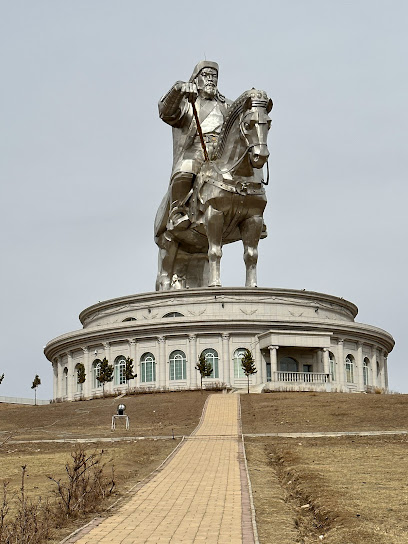
Gorkhi Terelj National Park
Explore the natural beauty of Gorkhi Terelj National Park, a breathtaking oasis near Ulaanbaatar filled with adventure, culture, and stunning landscapes.
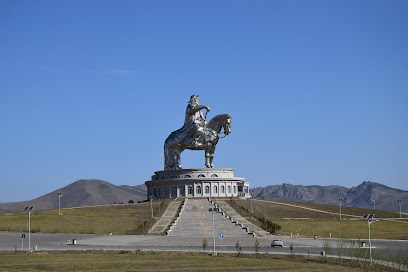
Zaisan Monument
Discover the breathtaking views and rich history of Zaisan Monument, Ulaanbaatar's iconic tribute to the past and a must-visit tourist attraction.
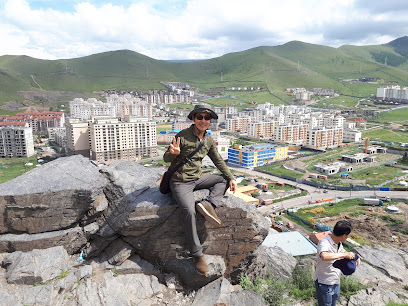
Монголын Үндэсний Музей
Explore Mongolia's heritage at the National Museum, where history comes alive through captivating artifacts and stunning exhibitions.
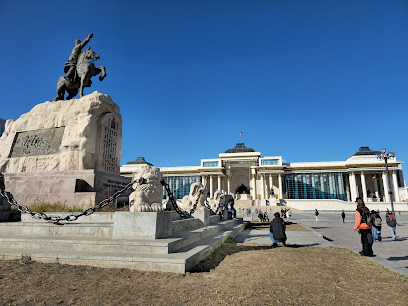
Bogd Khaan Palace Museum
Uncover Mongolia's imperial history at the Bogd Khaan Palace Museum, a captivating blend of art and heritage in Ulaanbaatar.

Bogd Khan Uul Strictly Protected Area
Immerse yourself in the untouched beauty of Bogd Khan Uul, a national park offering unparalleled landscapes and outdoor adventures just outside Ulaanbaatar.
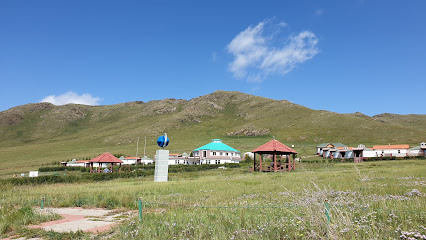
Erdene Zuu Monastery
Discover the rich history and serene beauty of Erdene Zuu Monastery, Mongolia's first Buddhist sanctuary nestled near Kharkhorin.
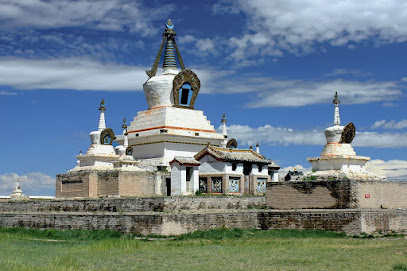
Gobi Gurvan Saikhan National Park
Discover Gobi Gurvan Saikhan National Park, a stunning natural wonder in Mongolia with diverse landscapes, rare wildlife, and rich cultural experiences.
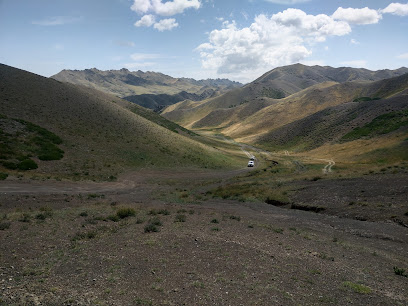
Kharakhorum Museum
Explore Mongolia's ancient capital at the Kharakhorum Museum, where history comes alive through captivating exhibits and artifacts.
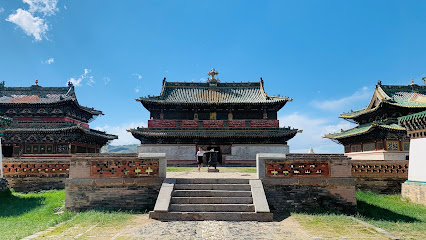
Khamariin Khiid Monastery
Explore the spiritual heart of Mongolia at Khamariin Khiid Monastery, a serene retreat surrounded by breathtaking landscapes and rich cultural heritage.
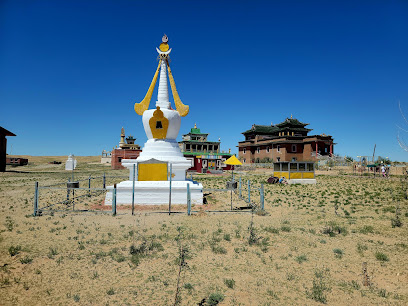
Red Waterfall
Explore the breathtaking beauty of the Red Waterfall in Ovorkhangai, Mongolia—a stunning natural wonder that captivates with its vibrant colors and serene landscapes.
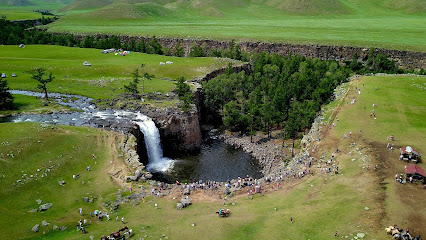
Orkhon Valley Natural and Historical Reserve
Explore the Orkhon Valley Natural and Historical Reserve, a UNESCO World Heritage Site, where stunning landscapes meet rich cultural heritage in Mongolia.
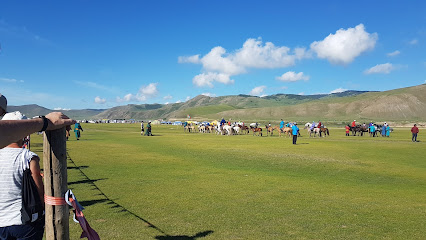
Aryapala Temple Meditation Center
Explore the tranquil beauty of Aryapala Temple Meditation Center, a serene Buddhist retreat in Ulaanbaatar, Mongolia, perfect for spiritual rejuvenation.
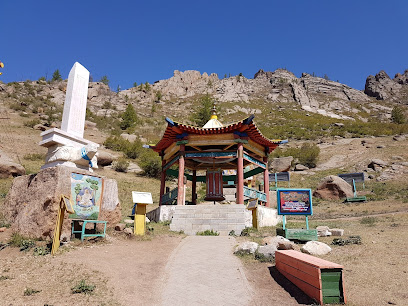
Ikh Khorum Hotel and Restaurant
Experience the essence of Mongolian culture and comfort at Ikh Khorum Hotel and Restaurant in Kharkhorin, the cradle of Mongolia's rich heritage.

Amarbayasgalant Monastery
Discover the serene beauty and rich history of Amarbayasgalant Monastery, a cultural gem nestled in Mongolia's scenic Selenge province.
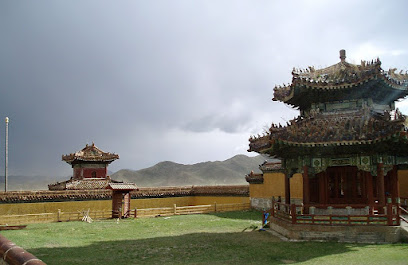
Unmissable attractions to see
Erdene Zuu Monastery
Explore Erdene Zuu Monastery, Mongolia's oldest Buddhist site, surrounded by breathtaking landscapes and rich cultural heritage.
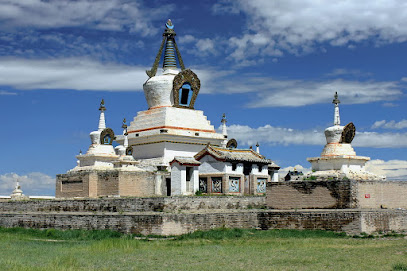
Orkhon Valley Natural and Historical Reserve
Explore the breathtaking landscapes and rich history of Mongolia at the Orkhon Valley Natural and Historical Reserve, a UNESCO World Heritage site.
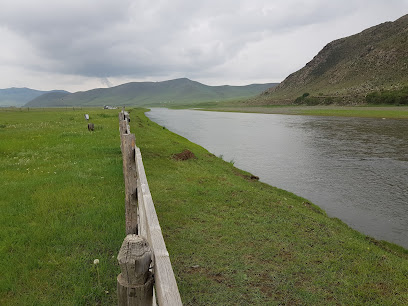
Elsen Tasarkhai (Sand Dune Mini Gobi)
Explore Elsen Tasarkhai, the Mini Gobi of Mongolia, where golden dunes, camel rides, and breathtaking landscapes await adventurers and nature lovers.
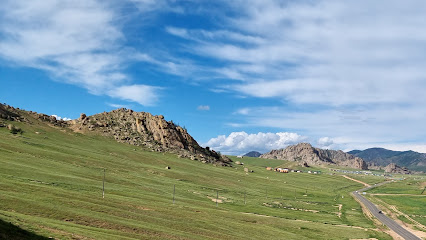
Orkhon Waterfall
Experience the stunning Orkhon Waterfall, a breathtaking natural wonder in Mongolia's Ovorkhangai region, perfect for nature lovers and adventurers.
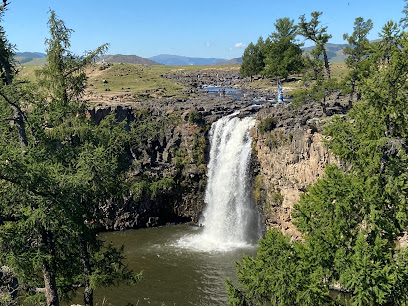
Gokhturk Museum at Khoshoo Tsaidam
Uncover the rich history of Mongolia at Gokhturk Museum, home to ancient artifacts and stories of the Gokturk Khaganate in Arkhangai.
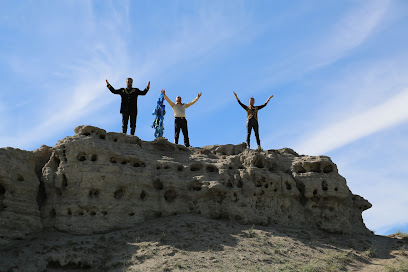
Shankh Monastery
Explore the serene Shankh Monastery in Ovorkhangai, a hidden gem of Mongolia showcasing rich Buddhist culture and stunning natural landscapes.
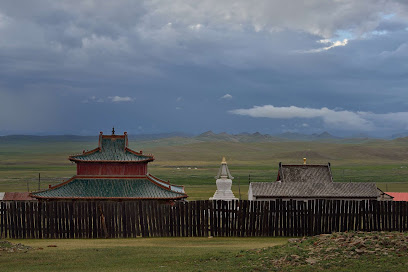
Anar tourist camp
Experience the beauty of Mongolia at Anar Tourist Camp, where comfort meets adventure in the heart of Kharkhorin.

Orkhon Tushee Juulchny Baaz
Experience the serene beauty and rich traditions of Mongolia at Orkhon Tushee Juulchny Baaz, a captivating tourist attraction in Ovorkhangai.
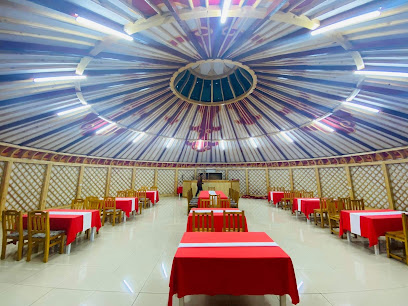
Tolgoin boolt
Experience the serene beauty and cultural richness of Tolgoin Boolt, a must-visit tourist attraction in Kharkhorin, Mongolia.
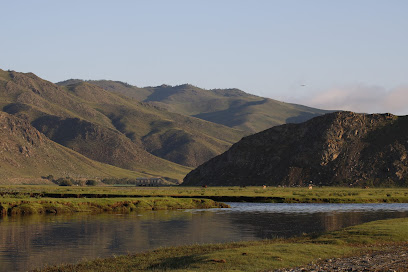
Dz moto
Discover Dz Moto, a stunning tourist attraction in Ovorkhangai, Mongolia, where breathtaking landscapes and rich culture await every traveler.

Silver tree
Experience the serene beauty and cultural significance of the Silver Tree in Kharkhorin, a must-visit attraction in Mongolia's historical landscape.
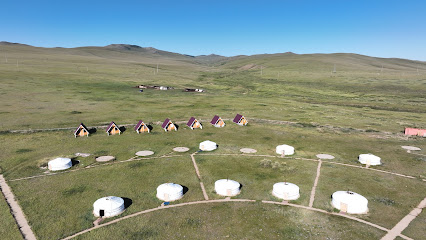
Essential places to dine
Grand Khaan Irish Pub
Discover the vibrant atmosphere of Grand Khaan Irish Pub in Ulaanbaatar – where local flavors meet international charm.
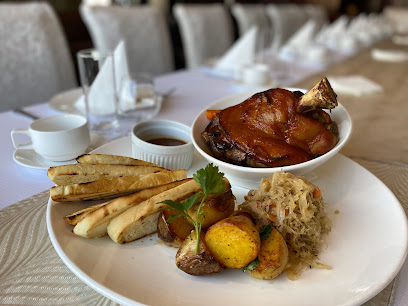
Rosewood Kitchen + Enoteca
Experience authentic Italian cuisine in Ulaanbaatar at Rosewood Kitchen + Enoteca - where flavor meets tradition.
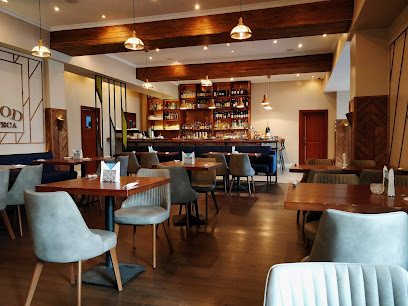
Choijin Temple Restaurant
Experience exquisite Mediterranean cuisine at Choijin Temple Restaurant in Ulaanbaatar - where tradition meets modern culinary artistry.
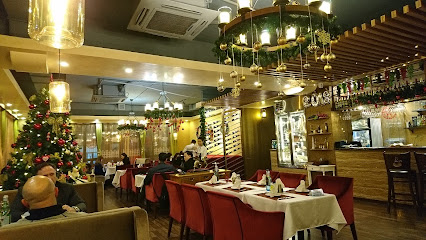
Hazara Indian Restaurant
Experience authentic Indian cuisine at Hazara Indian Restaurant in Ulaanbaatar - a culinary gem for food lovers seeking rich flavors.
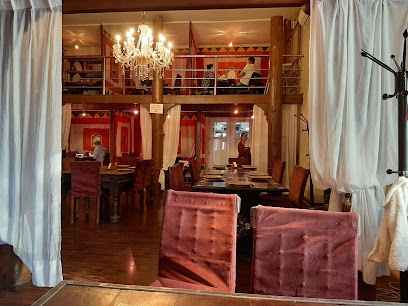
Great Mongol Restaurant & Pub
Savor authentic Mongolian cuisine at Great Mongol Restaurant & Pub in Ulaanbaatar – where culture meets flavor.
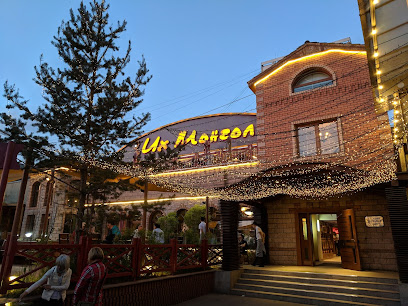
Millie's Espresso
Experience the best of American cuisine at Millie's Espresso in Ulaanbaatar—your go-to spot for delicious food and exceptional coffee.
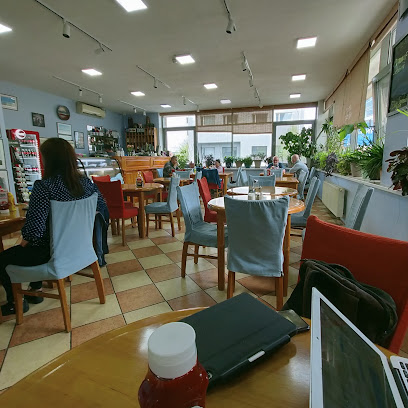
Seoul Restaurant
Experience the best of Korean cuisine at Seoul Restaurant in Ulaanbaatar—where tradition meets modern dining.
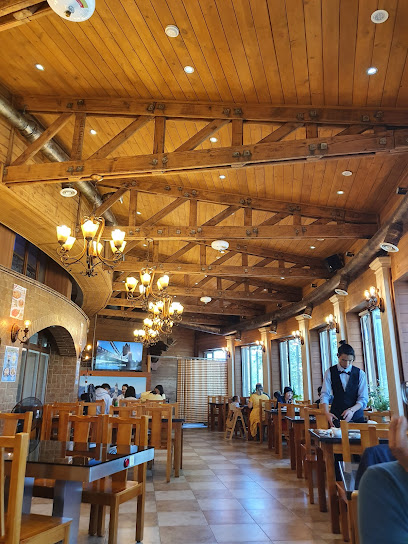
Modern Nomads
Savor traditional Mongolian cuisine at Modern Nomads in Ulaanbaatar – where rich flavors meet cultural heritage.
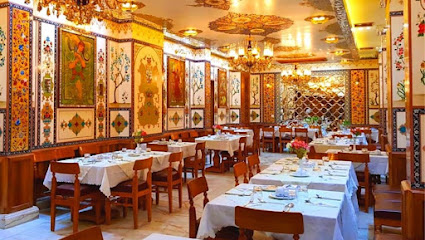
Naadam Bar & Restaurant, Shangri-La Ulaanbaatar
Experience exquisite flavors at Naadam Bar & Restaurant - where American, Asian, and European cuisines converge in Ulaanbaatar's heart.
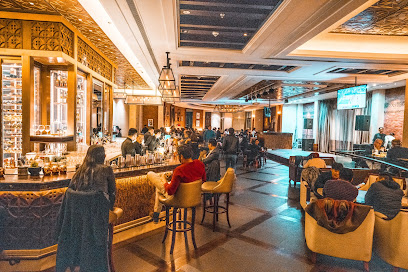
Bluefin Cuisine D'Art
Experience exceptional dining at Bluefin Cuisine D'Art in Ulaanbaatar - where modern flavors meet tradition.
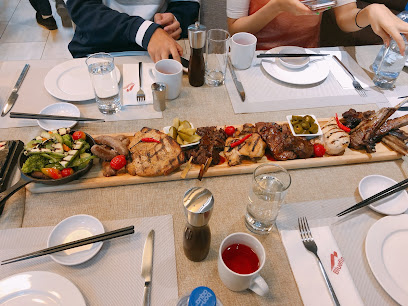
Jargalan Restaurant & Pub
Experience authentic Mongolian cuisine at Jargalan Restaurant & Pub in scenic Khovsgol - where flavor meets culture.
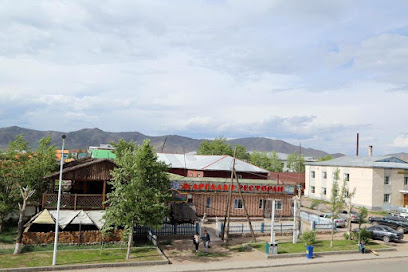
King Restaurant
Experience authentic Mongolian flavors at King Restaurant in Kharkhorin – where tradition meets taste in a cozy setting.
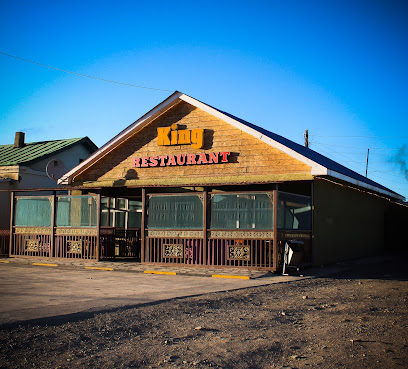
Sakura Sushi Bar
Experience authentic Japanese cuisine at Sakura Sushi Bar inside Kempinski Hotel - where elegance meets exceptional flavors in Ulaanbaatar.
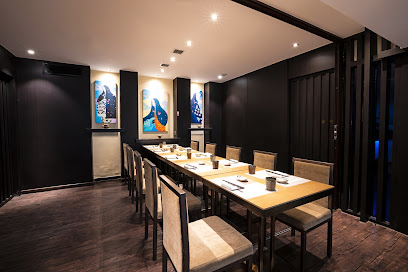
Agartha
Experience authentic Mongolian cuisine at Agartha, where every dish tells a story amidst a warm and inviting atmosphere.
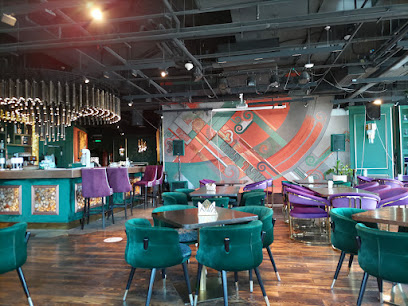
Lobby Lounge, Shangri-La Ulaanbaatar
Discover refined elegance at the Lobby Lounge in Shangri-La Ulaanbaatar with exquisite drinks and gourmet cuisine in a stunning setting.
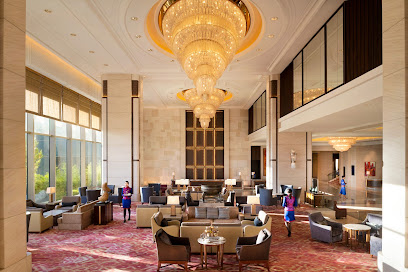
Markets, malls and hidden boutiques
Golden Meadows Shopping Mall
Discover a blend of local and international shopping at Golden Meadows Shopping Mall in Ovorkhangai, a must-visit destination for all tourists.

Увс аймаг
Experience the authentic flavors of Mongolia at Uvs Aimag Bakery, where tradition meets taste in every delightful bite.

Усны ажхуй
Explore Usnii Azhikhui in Ovorkhangai for a unique shopping experience filled with local crafts and cultural treasures.

Үйлс онлайн шоп
Explore the vibrant styles of Үйлс Онлайн Шоп in Ovorkhangai, where traditional Mongolian fashion meets contemporary trends for all tastes.

Internom, interkids
Explore the literary delights of Internom, Interkids in Ovorkhangai, where you can find local and international books to enrich your travel experience.

Bulgan Dashinchilen
Explore Bulgan Dashinchilen in Ovorkhangai for authentic Mongolian crafts and souvenirs, reflecting the rich cultural heritage of Mongolia.

Цагаанчулуут
Experience the charm of Цагаанчулуут, a cultural store in Ovorkhangai showcasing traditional Mongolian craftsmanship and warm hospitality.

5 шар
Explore the unique local crafts and traditional Mongolian goods at 5 шар in Ovorkhangai, a must-visit store for every traveler.

Its my time
Discover the delightful flavors of Ovorkhangai at 'Its My Time' Bakery, where fresh pastries and traditional treats await every visitor.

Товчооны зам
Explore Товчооны зам in Ovorkhangai, a haven for audio enthusiasts with quality home audio equipment in a culturally rich setting.

Шинэ сансар зах
Discover the lively Shinee Sansar Market in Ovorkhangai, where local culture, crafts, and cuisine come together for an unforgettable experience.

Sambuugiin ger
Discover the rich flavors of Mongolia at Sambuugiin Ger, a charming ham shop in Ovorkhangai offering authentic local delicacies.

Metro Mart
Discover the vibrant Metro Mart in Ovorkhangai, where local culture, crafts, and flavors come together for an unforgettable market experience.

vodka
Explore the essence of Mongolia at the Vodka Store in Ovorkhangai, where tradition meets flavor in every bottle.

Э.Лхагвадулам
Discover the literary gems of Mongolia at Э.Лхагвадулам, a charming bookstore in Ovorkhangai offering a variety of books and cultural events.

Essential bars & hidden hideouts
Ikh Khorum Hotel and Restaurant
Discover a blend of comfort and tradition at Ikh Khorum Hotel and Restaurant in Kharkhorin, Mongolia, where cultural heritage meets warm hospitality.

King Restaurant
Experience authentic Mongolian flavors at King Restaurant, a culinary haven in Kharkhorin offering traditional dishes in a warm and inviting atmosphere.
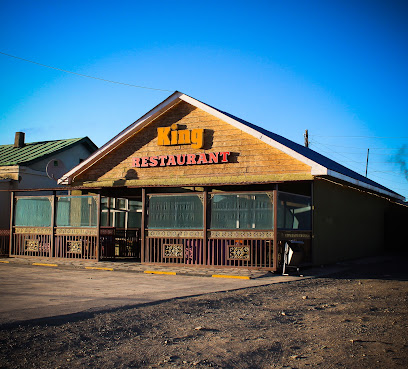
Gurvan tamir
Experience authentic Mongolian flavors at Gurvan Tamir, a local favorite restaurant in Kharkhorin, perfect for immersing in the region's culinary delights.
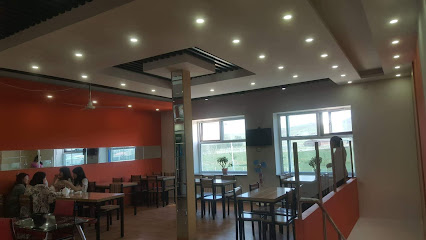
Titem boru
Discover the vibrant flavors of Asia at Titem Boru, an Asian restaurant in Kharkhorin, Ovorkhangai, where culinary traditions come alive.
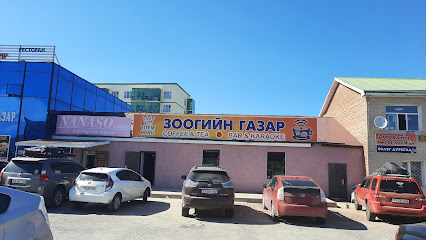
ХАРХОРИН ИХ ОРГИЛ ЗОЧИД БУУДАЛ РЕСТОРАН
Discover the rich flavors of Mongolia at Kharkhorin Ikh Orgil Restaurant, where tradition meets taste in a welcoming atmosphere.
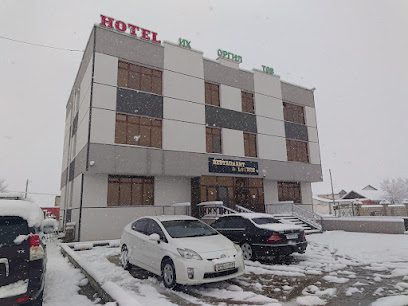
танцевальная обезьяна
Experience the lively atmosphere and unique cocktails at Dance with the Monkey, Ovorkhangai's must-visit bar for unforgettable nights.
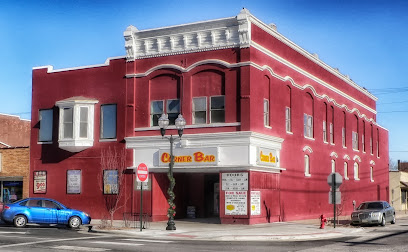
Morin Jim Lounge
Explore Morin Jim Lounge in Kharkhorin for a unique blend of Mongolian charm and vibrant nightlife, perfect for unwinding and socializing.
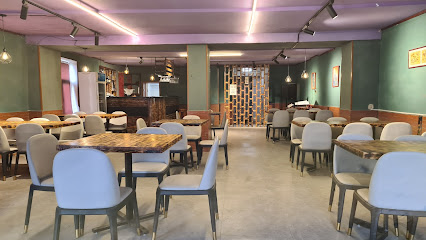
Star nightclub
Experience the vibrant nightlife at Star Nightclub in Arvaikheer, where live music and delicious drinks create unforgettable memories.

Morin jim hotel and restaurant
Savor the rich flavors of Mongolia at Morin Jim Hotel and Restaurant, a perfect blend of tradition and hospitality in Kharkhorin.

Buynt-Khairkhan Restaurant
Discover the authentic flavors of Mongolia at Buynt-Khairkhan Restaurant in Khujirt, a must-visit for every traveler exploring Ovorkhangai.
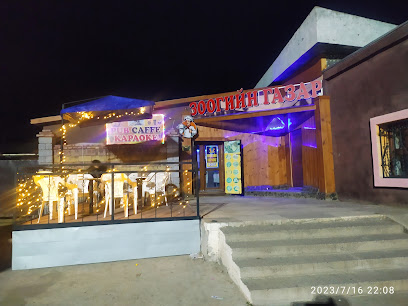
Тумбааш
Discover the authentic flavors of Mongolia at Тумбааш in Kharkhorin, where traditional dishes and a warm atmosphere await every traveler.
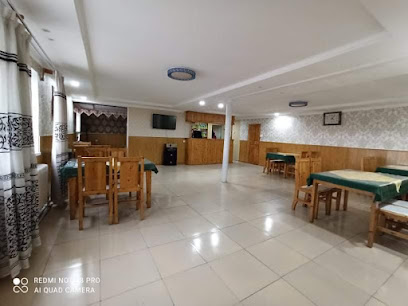
Zochin buuz
Savor the authentic taste of Mongolia at Zochin Buuz, where traditional dumplings meet a cozy dining experience in Kharkhorin.
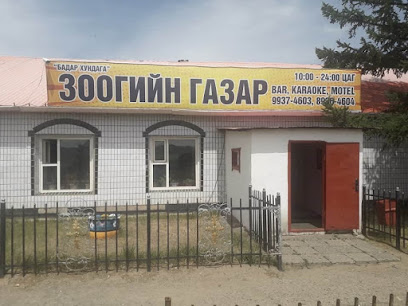
Morin jim Lounge
Savor authentic Mongolian cuisine in the heart of Kharkhorin at Morin Jim Lounge, a culinary delight that blends tradition with modern flavors.
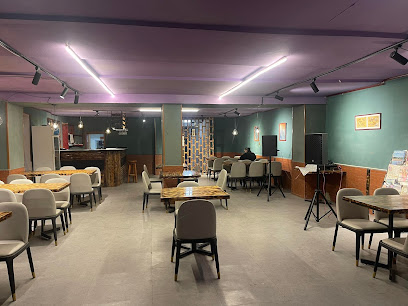
Gold moon
Discover authentic Mongolian cuisine at Gold Moon, a charming restaurant in Ovorkhangai offering a warm atmosphere and delicious local flavors.

Local Phrases about Karakorum
-
- HelloСайн байна уу
[sain baina uu] - GoodbyeБаяртай
[bayartai] - YesТийм
[tiim] - NoҮгүй
[ugui] - Please/You're welcomeБаярлалаа
[bayarlalaa] - Thank youБаярлалаа
[bayarlalaa] - Excuse me/SorryУучлаарай
[uuchlaarai] - How are you?Та яагаад байна?
[ta yaagad baina?] - Fine. And you?Сайхан. Та чи?
[saikhan. ta chi?] - Do you speak English?Та англи хэл дуудах уу?
[ta angli khel duudakh uu?] - I don't understandБи ойлгохгүй
[bi oilgokhgui]
- HelloСайн байна уу
-
- I'd like to see the menu, pleaseМенюг харахыг хүсч байна
[meniug kharakhyg khush baina] - I don't eat meatБи мах идэхгүй
[bi makh idekhgui] - Cheers!Амжилт!
[amjilt!] - I would like to pay, pleaseТөлбөрөө хийхийг хүсч байна
[tolboroo khikhiig khush baina]
- I'd like to see the menu, pleaseМенюг харахыг хүсч байна
-
- Help!Тусламж!
[tuslamzh!] - Go away!Явж байгаа!
[yavzh baigaa!] - Call the Police!Үндсэн хяналтын алба хаагч!
[undseng khyanaltyn alba khagch!] - Call a doctor!Эмч яв!
[emch yav!] - I'm lostБи алджээ
[bi aldjee] - I'm illБи айс
[bi ais]
- Help!Тусламж!
-
- I'd like to buy...Би авахыг хүсч байна...
[bi avakhig khush baina...] - I'm just lookingБи зөвхөн харж байна
[bi zovkhon kharkh baina] - How much is it?Энэ хэмжээ хэд байна?
[ene khemzhee khed baina?] - That's too expensiveЭнэ хэмжээ их байна
[ene khemzhee ikh baina] - Can you lower the price?Үнийг бууруулах боломжтой уу?
[uniig buuruulakh bolomzh toi uu?]
- I'd like to buy...Би авахыг хүсч байна...
-
- What time is it?Одоо хэн цаг вэ?
[odoo khn tsag ve?] - It's one o'clockНэг цагт
[neg tsagt] - Half past (10)10-ийн дунд
[10-iin dund] - MorningӨглөө
[ogloo] - AfternoonОрой
[oroi] - EveningОрой
[oroi] - YesterdayӨчигдөр
[ochigdor] - TodayӨнөөдөр
[onoodor] - TomorrowМаргааш
[margaash] - 1Нэг
[neg] - 2Хоёр
[khoyor] - 3Гурван
[gurvan] - 4Дөрөв
[dorov] - 5Таван
[tavan] - 6Зургаа
[zurgaa] - 7Долоо
[doloo] - 8Найм
[naim] - 9Ес
[es] - 10Арав
[arav]
- What time is it?Одоо хэн цаг вэ?
-
- Where's a/the...?...хаана байна?
[...khana baina?] - What's the address?Хаяг хаана байна?
[khayag khana baina?] - Can you show me (on the map)?(Газрын зураг дээр) харуулах боломжтой уу?
[(gazrin zurag deer) kharuulakh bolomzh toi uu?] - When's the next (bus)?Дараагийн (автобус) хэзээ байна?
[daraagiin (avtobus) khedzee baina?] - A ticket (to ....)Цуглуулга (....)
[tsugluulga (....)]
- Where's a/the...?...хаана байна?
History of Karakorum
-
Karakorum, established by Ögedei Khan in 1220, was the capital of the Mongol Empire. Located in the Orkhon Valley, this city served as the political, cultural, and economic heart of the empire during its peak.
-
Karakorum played a pivotal role in the Silk Road, serving as a hub for trade and cultural exchange between Asia and Europe. The city was frequented by merchants, diplomats, and explorers, contributing to its cosmopolitan atmosphere.
-
In 1585, the Erdene Zuu Monastery was constructed near the ruins of Karakorum by Abtai Sain Khan. This monastery, which is considered the first Buddhist monastery in Mongolia, stands as a testament to the region's religious and cultural transformation.
-
In 1388, Karakorum was destroyed by Ming Dynasty forces led by General Xu Da. The city was razed to the ground, marking the end of its prominence as the capital of the Mongol Empire.
-
Modern archaeological excavations in Karakorum have uncovered significant artifacts, including the foundations of the Great Khan's palace, various temples, and residential areas. These findings provide valuable insights into the city's layout and daily life during its zenith.
-
The Orkhon Inscriptions, found near Karakorum, are ancient Turkic monuments that offer a glimpse into the early history of the region. These inscriptions are crucial for understanding the linguistic and cultural heritage of the area.
-
In 2004, the Orkhon Valley Cultural Landscape, including the ruins of Karakorum, was designated as a UNESCO World Heritage Site. This recognition underscores the historical and cultural significance of Karakorum and its surroundings.
Karakorum Essentials
-
Karakorum is located in the central part of Mongolia. The nearest international airport is Chinggis Khaan International Airport in Ulaanbaatar, approximately 370 kilometers away. From Ulaanbaatar, you can take a bus, hire a private car, or even join a guided tour to reach Karakorum. The journey typically takes around 5 to 6 hours by road. Alternatively, there are domestic flights to Kharkhorin, a nearby town, and from there, Karakorum is just a short drive away.
-
In Karakorum, local transportation options include taxis and buses. Taxis are relatively inexpensive and can be hailed from most parts of the town. For those looking to explore the surrounding areas, renting a car is also a feasible option. Guided tours are available and can provide both transportation and in-depth historical insights. Bicycles can also be rented for a more leisurely exploration.
-
The official currency in Mongolia is the Mongolian Tugrik (MNT). Credit cards are accepted in some hotels, restaurants, and shops in Karakorum, but it is advisable to carry cash, especially for smaller establishments and rural areas. ATMs are available but may not be as widespread, so it is wise to withdraw sufficient cash in Ulaanbaatar before traveling to Karakorum.
-
Karakorum is generally a safe destination for tourists. However, as with any travel destination, standard precautions should be taken. Avoid walking alone at night in unfamiliar areas and keep an eye on your belongings in crowded places. While Karakorum does not have specific high-crime areas targeting tourists, it is always best to stay vigilant and aware of your surroundings.
-
In case of emergency, dial 102 for police assistance, 103 for medical emergencies, and 101 for fire emergencies. It is recommended to have travel insurance that covers medical emergencies. For minor health issues, there are pharmacies in Karakorum where you can purchase over-the-counter medications. The local hospital can provide basic medical care, but for more serious conditions, you may need to travel to Ulaanbaatar.
-
Fashion: Do dress modestly, particularly when visiting religious sites. Avoid wearing overly revealing clothing. Religion: Do respect local customs and traditions. Always remove your shoes before entering temples and monasteries. Public Transport: Do be courteous and give up your seat to elderly passengers. Don’t eat or drink on public transport. Greetings: Do greet people with a handshake or a slight bow. It is customary to use both hands when offering or receiving items. Eating & Drinking: Do try local delicacies and accept food offerings graciously. Don’t refuse hospitality, as it is considered impolite.
-
To experience Karakorum like a local, visit the local markets where you can buy fresh produce and traditional Mongolian goods. Engage with locals, as they are often friendly and willing to share stories about the town's history and culture. Don’t miss visiting the Erdene Zuu Monastery, one of the oldest Buddhist monasteries in Mongolia. For a unique experience, consider staying in a traditional ger (yurt) to get a feel of the nomadic lifestyle.
Trending Landmarks in Karakorum
-
Chinggis Khaan Statue Complex
-
Gorkhi Terelj National Park
-
Zaisan Monument
-
Монголын Үндэсний Музей
-
Bogd Khaan Palace Museum
-
Bogd Khan Uul Strictly Protected Area
-
Erdene Zuu Monastery
-
Gobi Gurvan Saikhan National Park
-
Kharakhorum Museum
-
Khamariin Khiid Monastery
-
Red Waterfall
-
Orkhon Valley Natural and Historical Reserve
-
Aryapala Temple Meditation Center
-
Ikh Khorum Hotel and Restaurant
-
Amarbayasgalant Monastery
Nearby Cities to Karakorum
-
Things To Do in Ulaanbaatar
-
Things To Do in Semey
-
Things To Do in Pavlodar
-
Things To Do in Karakol
-
Things To Do in Cholpon-Ata
-
Things To Do in Kemin
-
Things To Do in Kochkor
-
Things To Do in Tokmok
-
Things To Do in Incheon
-
Things To Do in Seoul
-
Things To Do in Bishkek
-
Things To Do in Suwon
-
Things To Do in Chuncheon
-
Things To Do in Nur-Sultan
-
Things To Do in Kyzyl-Oi








